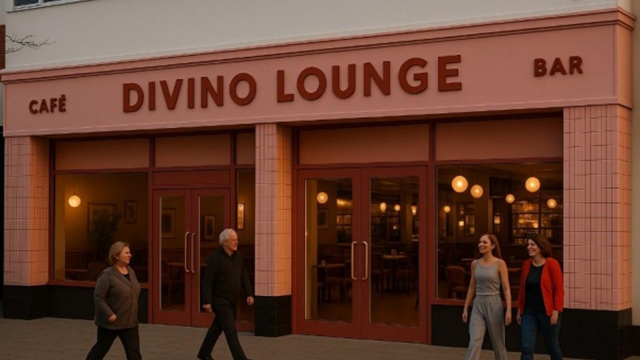 Following North Somerset’s decision to opt out of devolution, a newly elected mayor for the West of England could find themselves overseeing strategies for areas over which they have no control. Confused? Mark Smulian explains
Following North Somerset’s decision to opt out of devolution, a newly elected mayor for the West of England could find themselves overseeing strategies for areas over which they have no control. Confused? Mark Smulian explains
It sounds like something dreamed up in local government to test the property industry’s patience.
Short of some surprise political upset, a new elected mayor could gain devolved powers for a new West of England Combined Authority next May. Although a devolution deal has not yet been agreed, the mayor’s domain would include Bristol – which already has its own elected mayor – plus South Gloucestershire, and Bath and North East Somerset. But the mayor would have no control over North Somerset (see box), even though that local authority has joint spatial and transport strategies with its three neighbours.
Confused? Although the property industry around Bristol welcomes this £30m-over-30-years deal, it could definitely be tidier. The money will flow despite North Somerset’s absence, with a Bristol City Council spokesman confirming it will simply be shared by the other three.
They add: “Strategic planning would be an important feature of the deal, but the detail around the specific relationship between the joint spatial plan and the proposed combined authority is yet to be finalised.”
The industry simply wants the councils to work together.
Nick Matthews, director of Savills’ Bristol planning team, says the devolution situation “may look chaotic, but one must understand the personalities and politics involved. North Somerset has a very strong leader in Nigel Ashton and he has been strongly against this devolution proposal, which I think he sees as bringing his area under Bristol. There is a similar feeling in Bath and North East Somerset, though to a lesser extent.
“With South Gloucestershire, it’s almost the opposite. They have worked with Bristol for a longer period and because of how the transport links work, Bristol has grown in that direction, while the other two areas have turned away from Bristol,” Matthews explains.
Tim Davies, head of Colliers International’s Bristol office, says: “Devolution will be a boost if it gives a fully coordinated plan for transport and infrastructure with a properly co-ordinated planning policy, and not with the councils at loggerheads and vying to get finance from central government.”
The devolved authority should focus on planning for skills and infrastructure, in particular a second motorway junction on the M4 between Bristol and Bath, says Davies, that would open up swathes of land near the science park.
Helen Tilton, associate director in Bristol with planning consultancy Turley, wonders where the deal’s proposed mayoral development corporations might go.
These would have planning and land assembly powers on strategic sites, but she says: “It’s not clear what constitutes a ‘strategic site’ or what compulsory purchase powers the new mayor might have.”
Even were this resolved, Tilton adds, “there are presently no obvious areas where a development corporation interjection is necessary. Most areas are unlocked, or are in the process of being unlocked for investment.”
The value of the metro mayor will lie in them, “having a veto over devolved issues and the ability to say to the local authorities they need to pull together and speak for the area”, says Philip Morton, senior director at CBRE Bristol.
“There are a lot of great things happening in Bristol, but it needs better promotion to shout about it more.”
Bristol is a growing city and its housing and employment land needs inevitably spill into its neighbours’ patches. Common sense would suggest this should be planned in a co-ordinated way.
The devolution deal might do that, or could yet fall foul of local jealousies.
West of England Mayor’s Devolved Powers
• Local transport budgets
• Bus services
• Key roads network
• Statutory spatial development strategy
• Aspects of skills and adult education
Whose idea was this, anyway?
The origins of the quarrels about the devolution deal and North Somerset’s membership lie in the fact that no council involved wanted a West of England elected mayor in the first place.
Council leaders felt able to collaborate to use the devolved powers, but when George Osborne was chancellor, he insisted on elected mayors for accountability.
Despite the summer’s signals that new ministers would relax Osborne’s insistence on elected mayors, this has been firmly squashed.
A Conservative council leader who attended a private briefing with communities secretary Sajid Javid told Estates Gazette: “Javid said ‘No mayor, no deal’, which was different from the mood music we’d been hearing.”
North Somerset withdrew support in June when Conservative leader Nigel Ashton said: “We have a great track record of successful joint working across the region, and we can continue this without the additional costly and bureaucratic layer of decision-making that a combined authority and [elected] mayor would bring.”
However, the council is part of joint spatial and transport plans with its three neighbours, so a mayor could end up working on plans that cover the whole area with powers over only three quarters of it.
To add to the potential for conflict, Labour’s Marvin Rees captured Bristol’s mayoralty last May, but the political arithmetic suggests a combined authority mayor would probably be Conservative, especially if North Somerset re-engages. Rees has made clear his support for the devolution deal, but is understandably wary of discussing any potential for disagreements with a combined authority mayor, or speculating on that person’s political colour.











